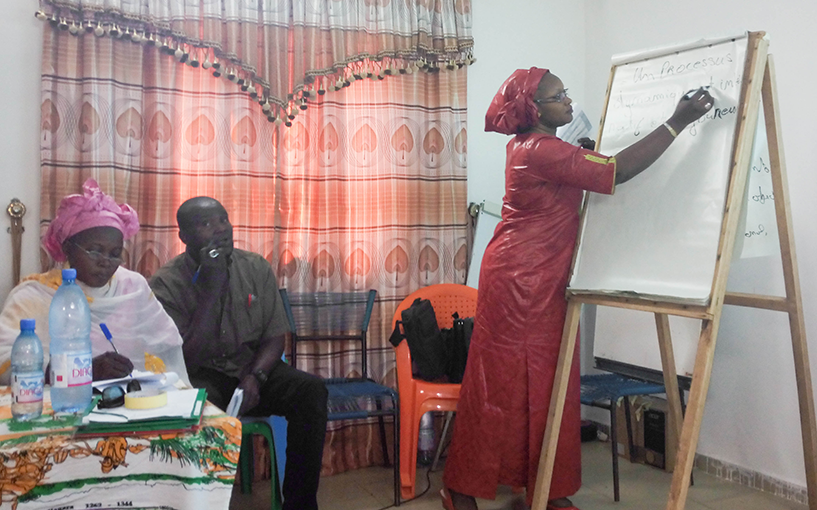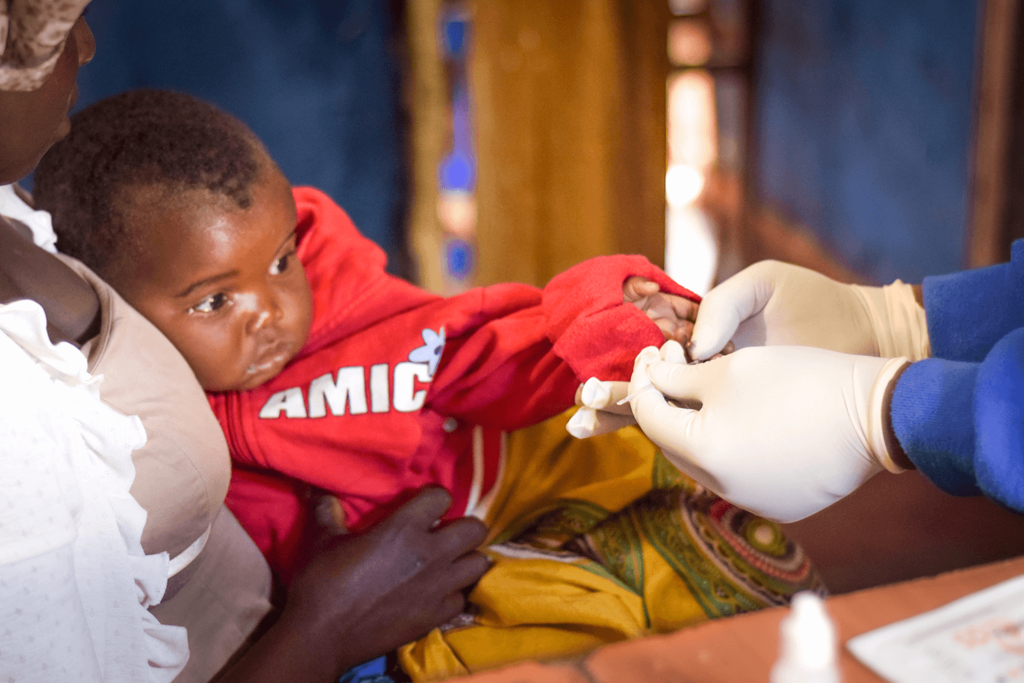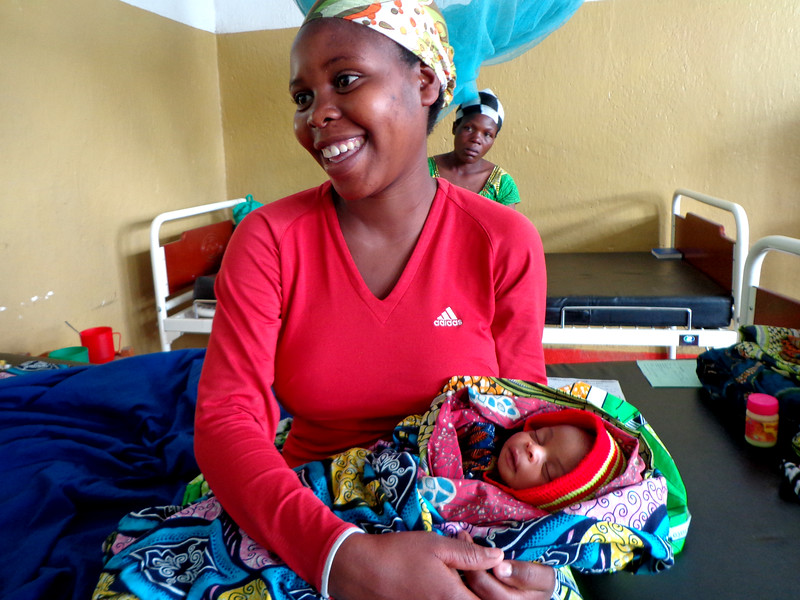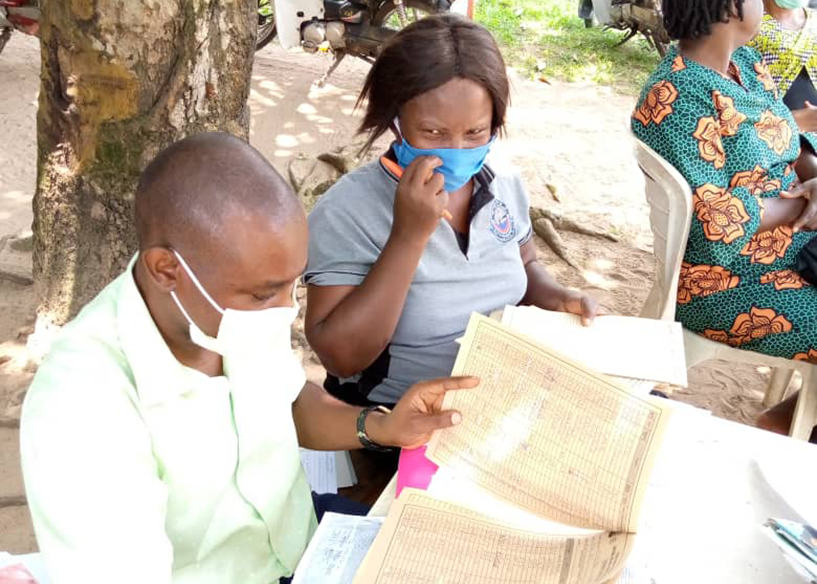Leading Voices: Meet Hawa Coulibaly Kone
Leading Voices: Meet Hawa Coulibaly Kone

Meet Hawa Coulibaly Kone, capacity building advisor and the representative on gender for the USAID-funded Keneya Jemu Kan (KJK) Project in Mali. Most recently, Hawa helped conduct a situational gender analysis of the KJK project and its partner organizations to assess the level of gender integration in the project design, implementation, and monitoring framework. The analysis found that KJK’s work with local partners across the country enabled the project to strengthen its institutional capacity in gender at the policy and programmatic levels and to respond to gender-related challenges.
We caught up with Hawa to learn more about how she and her team are working to break down barriers for women and build mutual trust among the project’s local partner organizations in Mali.
Tell us about your role and daily work on the KJK project in Mali
I joined the KJK project in August 2015. At first, it was a small team of two, myself and Hammouda, the senior technical advisor. I assisted in all activities, from developing plans and budgets to supporting activities for partners.
Slowly, the team has grown. Currently, I manage a multitude of activities, from leading institutional capacity assessments of organizations to assisting with leadership and governance trainings and supporting partners in the development and implementation of their strategic plans. In addition, I am now the representative on gender for the KJK team.
What inspired you to work for this project and in this area?
I had previously worked for a German organization focused on informal education for young people and adults. So finding a health project led by a consortium (three big organizations with three specific areas of interventions) was an opportunity to seize and to keep. Before joining MSH, I worked and had grown professionally in the area of institutional capacity building. This opportunity at KJK has enabled me to learn more and to put into action what I had learned in a different field.
How does your work on the project contribute to the impact of KJK?
As the lead partner in capacity building, our team’s work contributes to strengthening the capacity of our local partner organizations to conduct research, as well as design, test, implement, and evaluate social and behavior change communication and social marketing activities. All the activities that we lead with our partners are focused on improving their level of institutional development, so they then have the required competencies and capacities. Directly or indirectly, the work that we are doing with these organizations is strengthening their capacity to reach their objectives.
What is one of the obstacles you experienced related to gender and how did you manage it?
One of the difficulties that I have had to overcome is being a Malian woman in a man’s world. As a Malian woman, it is not easy to meet with partners and lead trainings or provide capacity building support, especially when the majority of these participants are men. In Mali, men and women alike are not used to seeing a young woman lead an important activity—and that can lead to a lack of trust and an impasse or deadlock. At first, and especially after our first experience facilitating our workshops, my other female colleagues and I would often say to each other, “If Hammouda can’t go to the next workshop, we need to postpone it.” But we were able to overcome this challenge through practice and capacity building of our own. Now, I can definitely say that our partners are impressed by the skills of the women on the KJK team; skills that they had initially dismissed. Meeting this challenge gave us confidence in ourselves, knowing that our partners listen to us differently now.
![[Hawa presenting the organizational development cycle to a group of workshop participants.]](https://msh.org/wp-content/uploads/2018/12/hawa_presenting_the_organizational_development_cycle_to_participants_817x600.png)
In your mind, what has been the biggest achievement of your team?
For me, our biggest achievement is the relationships we have been able to develop with our partners. A real partnership is based on mutual trust, built over time. Our partners no longer try to hide their weaknesses but look to us as a resource and for guidance.
What makes MSH’s approach to capacity building unique, compared to other organizations?
During my professional career, I have used several tools and methodologies for institutional capacity building. One thing I have been struck by is how simple it is to understand and apply MSH’s tools. MSH also uses an approach to institutional capacity building that requires the involvement and participation of all stakeholders.
Last but not least is the way MSH transfers competencies by training a select group within an organization so that they then have the skills to do the same exercise for others. It is critical. This simple method ensures that our activities will have a more lasting impact, be sustainable, and distinguish MSH from the other organizations out there.


